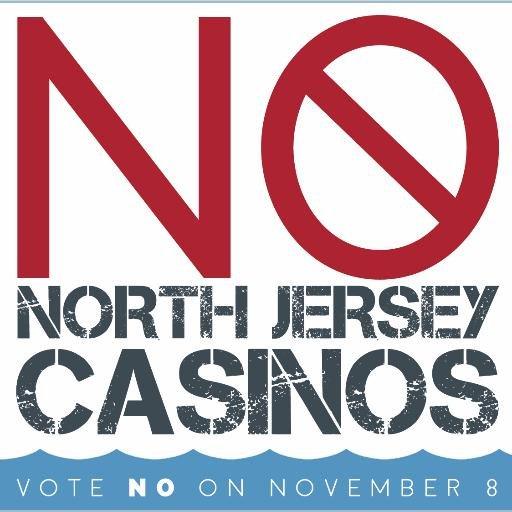North Jersey Casino Referendum Busts on Election Day
Posted on: November 9, 2016, 03:00h.
Last updated on: November 9, 2016, 03:26h.

The North Jersey casino referendum presented to voters on Election Day in the Garden State failed in crushing fashion.
Roughly eight in 10 voters voted against Public Question 1, which asked if the New Jersey Constitution should be amended to allow two casinos to be built at least 72 miles outside of Atlantic City.
A record $20 million was spent on referendum campaign ads, the vast majority coming from the anti-expansion movement.
Trenton’s Bad Bet, along with No North Jersey Casinos, were the leading organizations working to keep gambling in Atlantic City.
“We are glad to see the overwhelming support across New Jersey opposing casino expansion,” Trenton’s Bad Bet Executive Director Bill Cortese said in a press release. “Today’s vote is an important step for Atlantic City’s return to becoming a world class resort destination. We are gratified by the overwhelming defeat of this initiative.”
Failed constitutional referendums in New Jersey are banned from being placed back on the ballots for two years.
Nation Divided, State Unified
Proponents of the casino expansion measure opined that allowing gambling to move into North Jersey counties would actually be beneficial to Atlantic City. The amendment would have directed a substantial chunk of the newly generated tax revenue from the north casinos to revitalization projects in Atlantic City.
“New Jersey has been losing money for years because other states expanded gaming,” New Meadowlands Racing Chairman Jeffrey Gaul said in August. “Unfortunately, the talk about gaming expansion hasn’t focused on this critical issue.”
Our Turn NJ, the leading supporter of Public Question 1, said billions of dollars in gambling revenue is being lost to neighboring states. The theoretical North Jersey casino tax money would have also been shared with the struggling horse racing industry.
Residents in Atlantic County, however, didn’t buy what Our Turn NJ was selling. Roughly 94 percent of Atlantic County voters rejected casino expansion.
Atlantic County citizens certainly weren’t alone. In fact, none of the state’s 21 counties voted in favor of the referendum, including the North Jersey jurisdictions where the casinos would have likely been built.
Rhode Island Prevails
Voters in Rhode Island went a different direction on casino expansion.
Rhode Islanders approved casino operator Twin River’s wishes to transfer its gaming license from the Newport Grand Casino to a future facility in Tiverton. State lawmakers largely supported the measure in order to keep gambling revenues in the state.
The result is paramount to Massachusetts, as Tiverton is just miles from the state border.
Massachusetts has delayed awarding its Region C resort destination casino license due to concerns that the Mashpee Wampanoag people might win its federal court case to build a casino in Taunton.
Region C consists of the southeast part of the state near Tiverton.
Massachusetts gaming officials believe if the Mashpee Wampanoag is permitted to build a casino, another resort-style gaming venue would oversaturate the region.
With Twin River now cleared to build a casino just miles from the Massachusetts border, it would seem likely that Wynn Boston Harbor and MGM Springfield will be the only mega resort casinos in the Bay State.
No comments yet